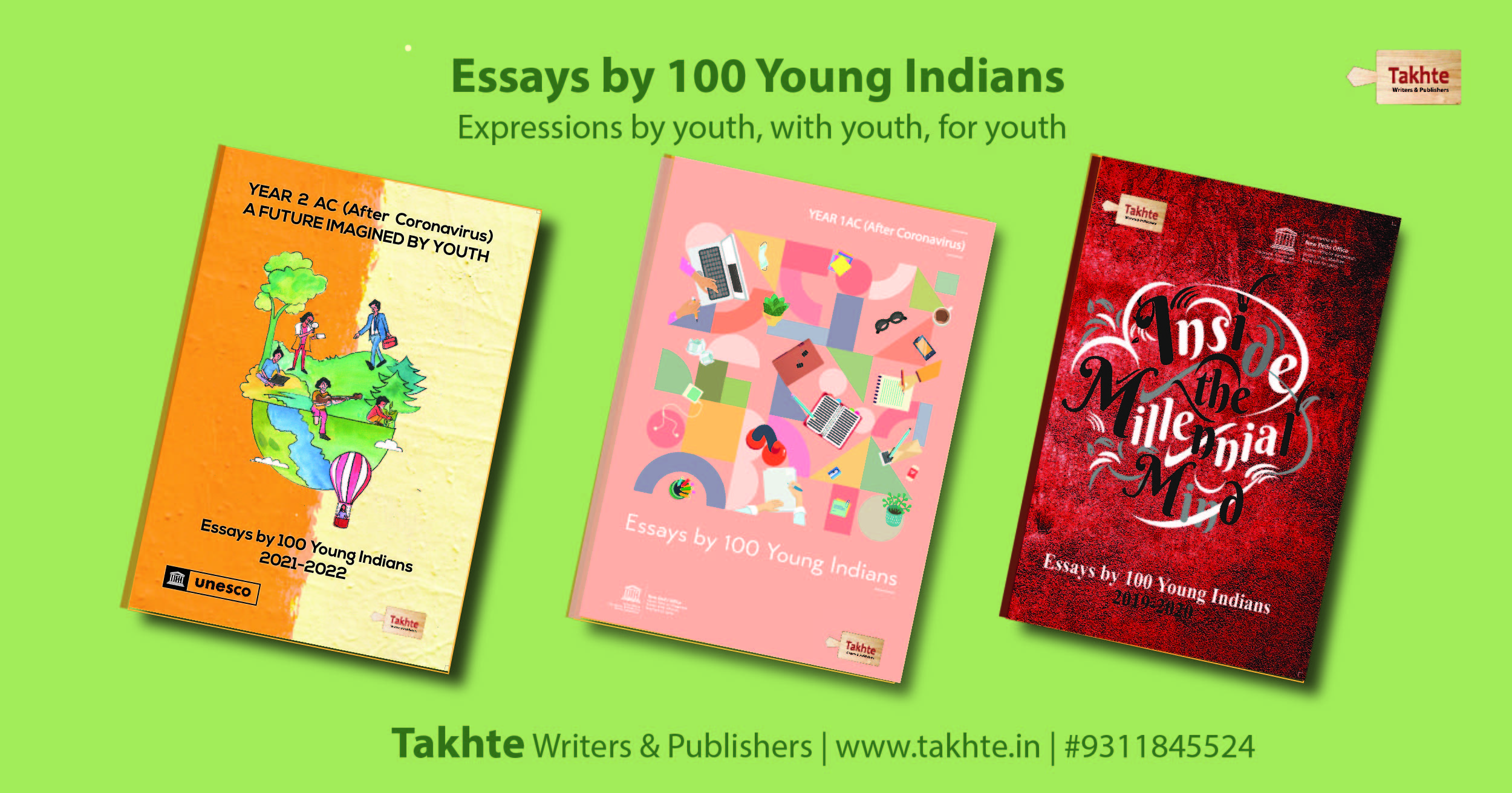Short-story
Mother and I
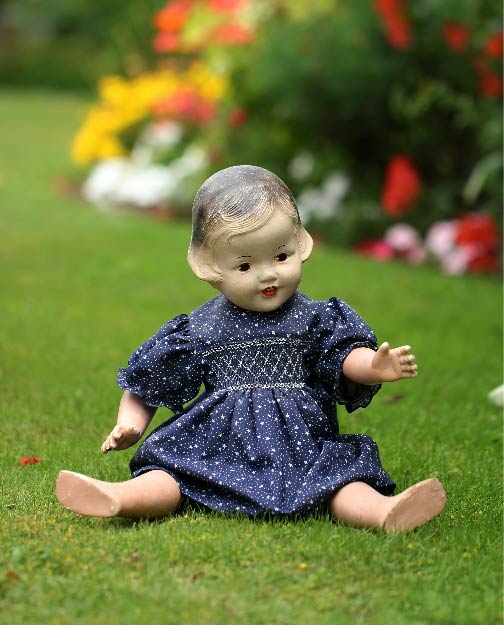
Akshara Singh
Grade – 8
Kothari International School,
Noida
“Mother, didn’t you promise to bring me a bunny from Mr Arbor? Please, Mother, I wish to have my little one like I am to you!” I say demandingly and take to the floor, tears flowing like waterfalls out of my pearls, as my mother called my eyes, thinking mother would feel for me and do as I please.
Instead, however, I fall prey to Mother’s stern gaze as she looks at me wide-eyed, not with horror but with a warning that I feel like I must heed. In a trance, I get back up to my feet, and it is as if Mother has held me tightly, and I cannot escape even if I would have tried. I’m a big girl; I can do it. But maybe another day. I can never tell what Mother is thinking; she always looks the same. She has a resting, peaceful face that doesn’t look very happy, which keeps me on edge. She reassures me by rubbing my back with her long, freezing fingers, and I always look up at her frosty blue eyes and smile as big as I can, so she knows I love her too. She’s all I have, and I’m all she has.
Though Mother doesn’t speak, I can always make out what she wants me to do. Her voice is coarse and feathery, and it carries the wind with her. On the rare occasion she speaks to me, my pigtails flail in the air and become shabby as the wind she carries along with her jokes. I look at her in a heartbeat with tears glistening in my eyes and my gaze a blur, and she soothes me as if to say, “Do not worry my little one. I’ll make you new and better ones.” And she never fails to do so. She gives me plenty of work to do these days, but it’s never a nuisance. I love feeling important in Mother’s eyes and making use of myself as I usually sit in front of our window staring out at other people who look like Mother and me. Incredibly, they can talk to each other.
She held my hand tight, tighter than usual. I shake my head in disappointment at myself. ‘Of course, she’s furious because I decided to cry like an infant even though we both know that I am all grown now!” In retrospect, I am not sure why I did so either. It was as if a reflex had been activated in me.
“Never do that ever again, Little one.” I feel a gulp in my throat as I know I am about to cry even more complex. Mother has never been this frightful. “I never want to see your pearls fill up with tears again. They’re precious, so do not waste them, darling.” She says as if to redeem herself. But the damage is done. I wait for her to slam our rickety old wooden door as she leaves, and I am all alone again.
Saying I despise being alone would be an understatement. I have to see other little clay dolls who looks naïve like me. They reside in a hole under our feet! It is beyond my understanding how Mother finds more like me. It never fails to dishearten me, though, since Mother always reminds me, I am the only one to walk this Earth and that there is no one else like me, but she brings a new little one almost every day. There’s always a little less colour, a little less red on their faces. Why? I know better than to ask Mother about it.
I lift open the remaining Earth that covers their house, I assume. It is much smaller than ours, and they never prance around theirs as I do. Do they not like it? Then, finally, I see one that looks like me. She looks more like me than I do. Her eyes are like Mother, which draws me to her. But hers are more unwelcoming and emotionless. I cannot make out if she wants to talk to me. So I go; either way, she could need a friend like me.
“Welcome!” I say, putting my hand forth, though I, myself, am not sure what the purpose of it is. I have seen Mother do it when she meets others that look like her, and I wish to be just like her. I frown a little when she doesn’t respond. She gasps on air as soon as I look down at my feet in despair and jerk my head up. I look around my surroundings and realise I am much closer to her than I thought. I need to be less careless! She has rusty skin and dirt all over her face. I know Mother doesn’t like it when anything from the ground touches her face, so I reckon she doesn’t either. I rush over and brush off the dirt from her face. As I turn to stand farther away, she grabs my hand tight. Tighter than Mother has ever held it before. I’m not too fond of it. I feel tired and lethargic; my knees start to wobble and lose motion as I fall to the ground. “What’s happening to me? Where is Mother-” My world goes dark in the middle of my sentence, and I drop in the embrace of soft, cool mud.
Still heavy and confused, my eyes glare off in the distance to see what looks like Mother! Without even being able to see correctly, I attempt to shout out to her. It doesn’t work. Why? My eyes shift back to focus as I see me, as in myself or someone that looks exactly like me, stand next to Mother. I scream and yell and shout to get Mother’s attention as she hands a bunny, my bunny, to the imposter. A mother embraces her; she kisses her forehead as she would mine. I begin to get frustrated and howl but to no avail. I shift my gaze to my hands; they are like porcelain and much paler. I do not look like myself. Mother, she is not your little one; I am! Why won’t you hear my cries?
(Photo Courtesy Sandy Millar- Unsplash)
Short-story
The Abandoned Soul
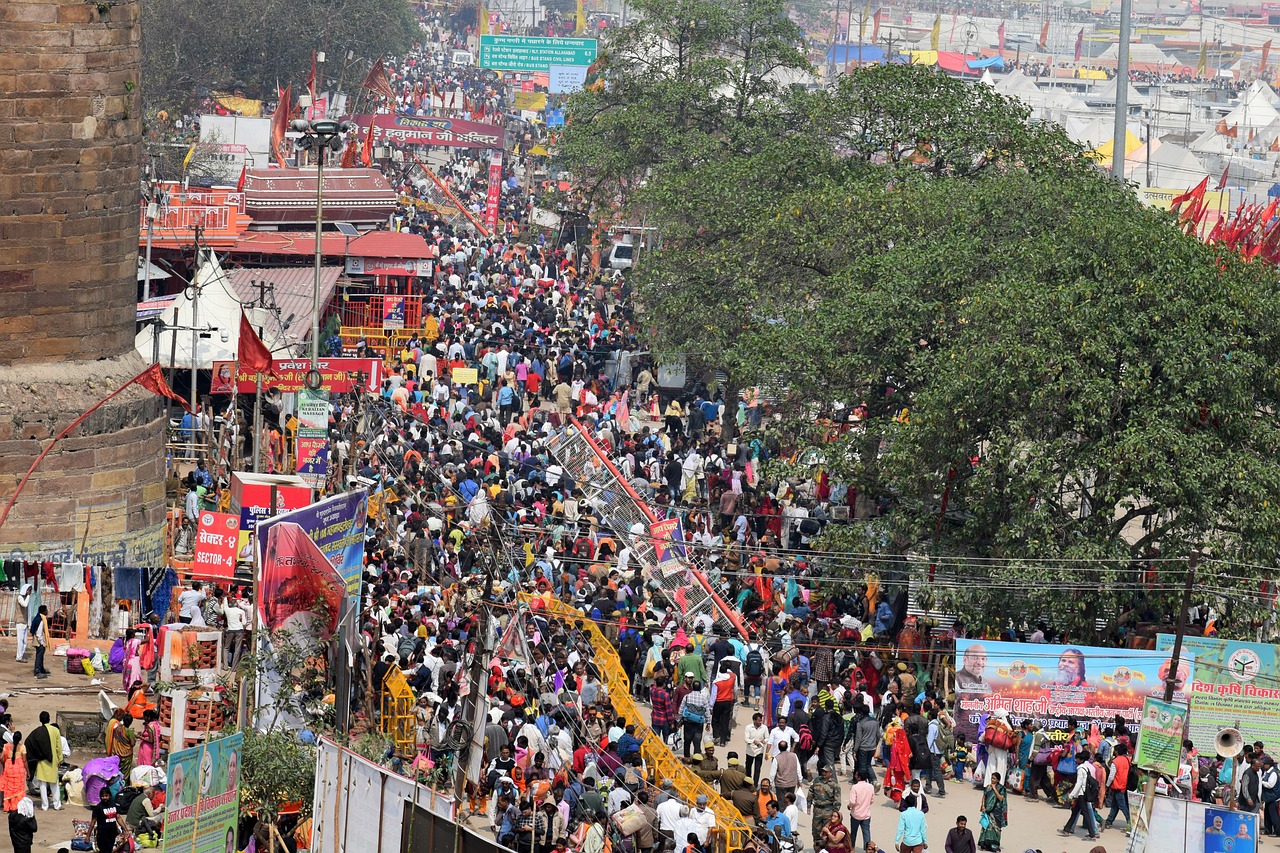
Short Stories – Kumbh Series
Garvit Agarwal
Lucknow
Writer attended a Creative Writing Course by Takhte Writers and Publishers
The sun hung low over the Kumbh Mela, casting a warm golden hue across the throngs of devotees gathered along the banks of the sacred Ganges. The air buzzed with chants, laughter, and the rustling of colourful saris flapping in the wind. Pulkit and Ragini moved through the crowd, their hands intertwined but their expressions distant.
“Look at them, Ragini,” Pulkit said, forcing a smile as he gestured toward a group of children splashing in the water. “So carefree.”
“Carefree,” she echoed, her voice tinged with bitterness. “Must be nice.” Her gaze drifted to their son, Akash, who stood a few paces behind them, his eyes wide as he took in the chaos around him. His fingers fidgeted with the hem of his shirt, a habit that had grown more pronounced in recent months.
“Let’s just find a spot,” Pulkit replied, his tone clipped. “We can’t stay here all day.”
As they settled near the ghat, the chanting grew louder, drowning out the silence that had settled between them. They exchanged a glance, a shared understanding of the growing weight of their decision.
“Pulkit,” Ragini began, her voice shaking slightly. “Are we really—”
“We have to,” he interrupted, the determination in his eyes hardening. “It’s for the best.”
Hours passed, the sun dipping lower, casting long shadows on the ground. Ragini watched as Pulkit knelt beside Akash, who was now fixated on a butterfly fluttering nearby. “Hey, buddy,” Pulkit said, his voice softer than before. “Want to chase that?”
Akash didn’t respond, lost in his world. Ragini felt a pang in her heart but quickly pushed it away. They were here for a reason, after all.
“We should go,” Pulkit said, rising to his feet. “It’s time.”
“Pulkit, I—”
“Ragini, we’ve talked about this.” He took a deep breath, his brow furrowed. “We can’t keep pretending everything is fine.”
With a heavy heart, they turned their backs on their son, leaving him by the ghat. “I’ll be right back, Akash,” Pulkit called over his shoulder, though he didn’t look back.
As they walked away, Ragini felt the weight of their decision settle in her chest like a stone. The laughter and chanting faded into a dull thrum, replaced by the sound of her heartbeat.
Later, as they listened to the preachings of a saint, a shift occurred. The saint’s voice boomed through the crowd, reverberating deep within Ragini. “Love is the greatest sacrifice,” he proclaimed. “To abandon those we love is to abandon our very souls.”
Pulkit stiffened beside her. “Did you hear that?”
“Yes!” she whispered, her heart racing. “We need to go back.”
They rushed back to the ghat, but the crowd had thickened, and panic set in as their eyes searched frantically. “Akash!” Ragini called, her voice rising above the chaos. “Where are you?”
“Stay calm,” Pulkit urged, though his voice trembled. “He can’t have gone far.”
Hours turned into days, and the relentless search for their son felt like a nightmare from which they could not wake. Each day, they returned to the ghat, calling his name until their voices were hoarse.
“Why did we leave him?” Ragini sobbed one evening, her tears mixing with the river’s water as she knelt by the bank. “What have we done?”
Pulkit sank to the ground beside her, his own eyes brimming with regret. “I thought I was doing the right thing,” he murmured, his voice breaking.
“Where is he?” She cried, her heart shattered. “What if—what if he’s alone and scared?”
They were lost in their remorse, the vibrant colours of the Mela fading into a blur of sorrow. The river flowed steadily beside them, indifferent to their pain, as they clung to the hope that somehow, some way, they would find their son again.
Photo Courtesy – Mr Rajesh Balouria by Pixabay
Short-story
Triumph of Connection
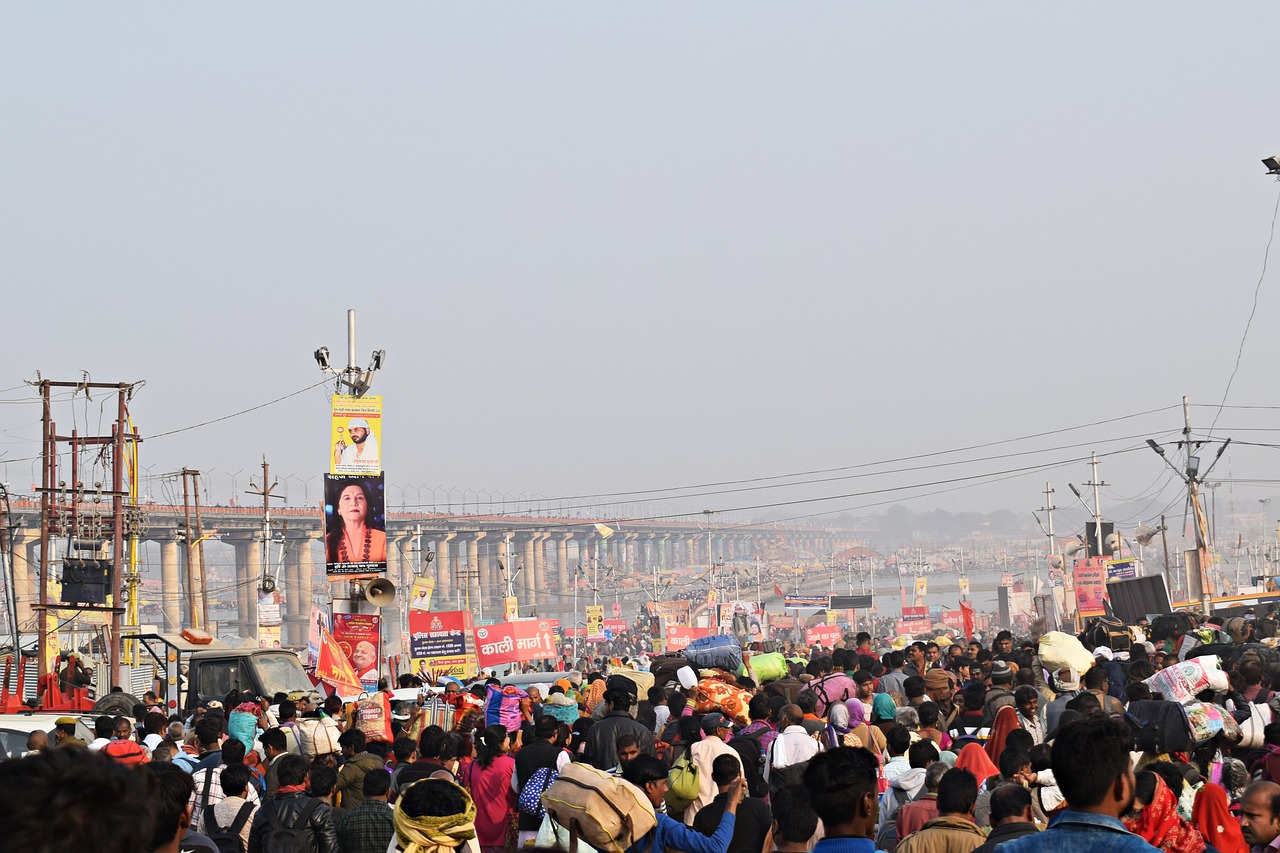
Short Stories – Kumbh Series
Rutbik Gupta
Bilaspur, Chattisgarh
Writer attended a Creative Writing Course by Takhte Writers and Publishers
The Kumbh Mela pulsed with life, colours swirling like a painter’s palette. Krish and Shreya squeezed through the throngs of pilgrims, their parents trailing behind, eyes wide with wonder. The air buzzed with chants, the scent of incense thick around them.
“Look at all those people!” Shreya shouted, her voice barely rising above the chaos. “I feel like we are in a river of heads!”
“Just stay close,” Krish replied, his grip tightening around her hand. “We can’t lose each other here.”
Suddenly, a small voice broke through the din. “Mama! Papa!” A boy, no older than six, stood alone, tears streaking his dusty cheeks. Krish’s heart sank.
“Shreya, we have to help him,” he said, kneeling to the boy’s level. “What’s your name?”
“Teerth,” he sniffled, wiping his nose on his sleeve. “I can’t find my parents!”
“Don’t worry, Teerth. We’ll help you,” Shreya promised, her voice softening. “Where did you last see them?”
“By the river… I was looking at the fish,” Teerth whimpered, glancing around, panic rising. “They were right there!”
“Okay, follow us,” Krish said, standing tall, determination setting in. “We’ll find them.”
They moved through the crowd, the rhythm of drums and chants echoing around them. Krish scanned each face, searching for a hint of recognition. Shreya whispered encouragement to Teerth, who clung to her hand.
“Look!” Shreya pointed, spotting a frantic couple searching through the crowd. “Teerth, is that them?”
Teerth’s eyes lit up. “Yes! Mama! Papa!” He bolted towards them, the sound of his small feet hitting against the ground.
Krish and Shreya exchanged relieved glances, hearts racing. The couple raised Teerth into their arms, tears streaming down their faces.
“Thank you! Thank you!” the mother cried, her voice breaking.
“Thank you so much, children. You’ve been our saviour”, said the father, with teary-eyed.
“No problem,” Krish said, a smile breaking through the tension. “Just doing what’s right.”
As the family embraced, Krish and Shreya shared a knowing glance. The chaos of Kumbh Mela swirled around them, but at that moment, they felt the triumph of connection.
Photo Courtesy – Mr Rajesh Balouria by Pixabay
Short-story
Fury of Tomato

Advika Bhatnagar
Shikshantar School, Gurugram
Grade 3
Alice, a nine-year-old boy, lived in the countryside of Tinseltown with his Granny. He was a stubborn and edgy child. He liked to eat whatever he wanted and didn’t care much about Granny’s words. This made the old lady very sad.
“Granny, Granny, hunger pangs! I want pizza and chocolate ice cream for dinner,” said Alice
“Wait, child, I’m making delicious chicken soup, healthy multigrain bread, and a fresh salad,” answered Granny.
Alice got angry when he saw salad on the dining table. He yelled, “Again, cucumber, bell pepper, carrot, and tomato. Is that what I will eat? “No, no, no, never, not at all. No dinner tonight.” Granny got worried and left the house to get his favourite food.
Alice was all alone. In anger, he picked up the tomato and threw it at the wall. The red pulp of the tomato almost covered the mid-wall. He was shocked to see the pulp turning into a monster.
“Ha, Ha, Ha, you stubborn boy. Every day I see you trouble your Granny for food. When you hit me against the wall today, I felt hurt. I will teach you a lesson. I am the new king of vegetables. I rule the meals,” said the tomato monster. And then the monster followed him everywhere in the room.
Alice was so scared that he was running in different directions. Sitting under the table, he quietly prayed, “Oh God, please save me from this deadly monster.”
Alice rushed to his Granny’s room, wears her hat and robe. He picks up the embroidered, favourite napkin of the Granny and moves slowly towards the wall. He wipes the tomato pulp, and the monster disappears right away.
Alice gets the lesson of his life to value all food. He vows to take care of Granny, as her belongings protect him. When she was back, he hugged her and said, “I love you so much. I will eat whatever you cook for me.”
The writer attended Takhte Writers & Publishers’ Story Writing Writeshop at Kalasthali, Gurugram.
Photo Courtesy – Andre Taissin (xRUJcUTEp6Y) Unsplash
-

 Uncategorized3 years ago
Uncategorized3 years agoOnline Elocution Contest
-

 Poems4 years ago
Poems4 years agoPoems
-

 Legal Talks4 years ago
Legal Talks4 years agoCUSTODIAL RAPE IN LIGHT OF THE MATHURA GANG RAPE CASE
-
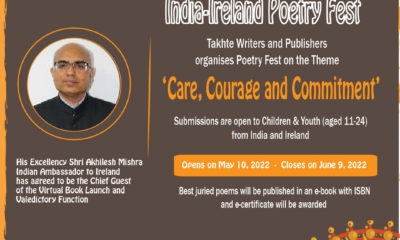
 Poems3 years ago
Poems3 years agoIndia-Ireland Poetry Fest
-

 Legal Talks4 years ago
Legal Talks4 years agoCompliances Relating to the Commercialization of Electronic Devices
-

 Art & Culture4 years ago
Art & Culture4 years agoThe Lore of the Days of Yore: Significance of History
-

 Legal Talks4 years ago
Legal Talks4 years agoPrivacy Laws & Consent while using Image of Random People Clicked on Street for Facial Recognition
-
Short-story4 years ago
Bibek’s visit at his friend’s bungalow


